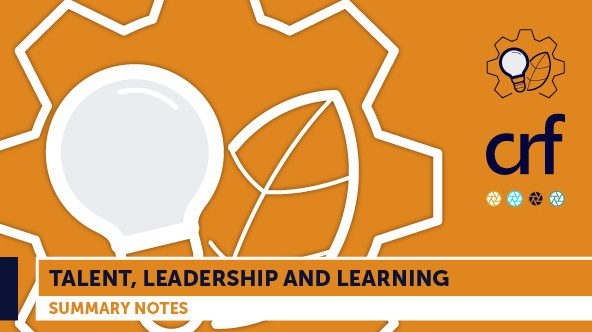Employee Experience and High-Performance Culture
What is Mentoring?
Mentoring is an established human partnership for learning and growth. A mentor is somebody who can help guide, advise, support and impart wisdom. They take the time to get to know their mentee and the challenges they’re facing and then use their understanding and personal experience to help that person improve. Mentoring is a well-proven method of enhancing personal development, with both the person being mentored (the mentee) and the person doing the mentoring (the mentor) gaining a lot from the relationship.
Mentoring definition
The act or process of helping and guiding another person to support their personal development.
Note that we’ve said ‘personal’ development here rather than ‘career’ development – and that’s because ultimately, mentoring is personal. If someone helps you improve your confidence or self-awareness, this can significantly help in career progression, but it can also translate beyond your day job!
Mentoring vs coaching
Mentoring and coaching both exist for the same purpose: helping others grow, develop and reach their full potential. The two are frequently grouped together when discussing career development, which often leads to confusion. In this section, we’ve outlined the key differences between mentoring and coaching:
| Mentoring | Coaching |
| Longer-term | Shorter-term |
| Typically voluntary | Typically paid |
| Mentor advises and guides | Coach trains and up-skills |
| Mentee drives the sessions | Coach drives the sessions |
| Working to achieve specific personal development goals | Working to develop specific skills or knowledge |
| Mentor advises based on personal experience | Coach does not necessarily discuss personal experience |
| All-round self-improvement | Specific improvement areas |
Misconceptions about mentoring
There are a few common misconceptions about mentoring that affect the way people think about what a mentor is. We want to set the record straight by myth-busting some statements about mentoring:
‘Mentors have to be old‘
Mentoring has no age requirements, and older people can benefit from being mentored by younger people, such as in reverse mentoring. What’s important is relevant experience and chemistry.
‘Mentoring only benefits mentees‘
Mentoring has heaps of benefits for the mentor as well as the mentee, including; improving communication and leadership skills, increased fulfilment, likelihood of promotion and more.
‘Mentoring is elitist‘
It’s not about senior managers taking prodigies ‘under their wing’. Modern mentoring is fair and inclusive (when established right) and can break down unfair hierarchies.
‘You’re either a mentor or a mentee‘
89% of people with a mentor go on to be a mentor themselves. You can be both a mentor and mentee and even switch between the two in a peer mentoring relationship.
‘My mentor has to be similar to me‘
Familiarity is nice, but the best learning happens when you’re exposed to different ways of thinking. It can be better for your development to seek out opinions from outside of your usual spheres of influence, you might influence your mentor too!
The benefits for mentees
Having a mentor – who is not a manager but knows the mentee in a professional capacity – is highly valuable to both career development and progression, as well as personal development and self-confidence. Having somebody to challenge their assumptions and question their approach to problems can lead to innovative thoughts and decisions. Additionally, those with mentors also benefit from growing their network outside of their organisation – a mentor can make introductions to a whole range of people who may have an impact on their careers later down the line.
Overall, the benefits for mentees are wide-ranging, and can help them in various ways:
- Self-confidence
- Self-awareness
- Job satisfaction
- Aspiration within the company
- Likelihood of promotion
- Loyalty to their company
- Personal network
- Reduced stress
- Reduced self-doubt
- Leadership skills
- Performance ratings
- Communication skills
The benefits for mentees
Being a mentor should not be seen just as ‘giving back’, as there are many benefits for the mentors themselves. Good mentors naturally become skilled at effectively delivering feedback, advising, and helping someone unlock their full potential. This expertise is valuable to all aspects of life, so not only is the mentor up-skilling their mentee, they are also up-skilling themselves!
Studies have shown mentors benefitting from improvements in:
- Communication skills
- Leadership skills
- Self-confidence
- Self-awareness
- Job satisfaction
- Fulfilment at work
- Mental health
- Personal network
- Delivering feedback
- Asking good questions
- Reputation in the business
- Rewarding feelings
Did you know?
Being a mentor also has a positive impact on mental health:
A study by Harvard Business Review found that people who served as mentors experienced lower levels of anxiety, and described their job as more meaningful, than those who did not mentor.
The benefits for organisations
The positive outcomes of mentoring stretch far beyond personal development for the people involved in the partnerships. Mentoring in the workplace has huge benefits for the organisations themselves, by solving business challenges and helping embed a culture of learning and development in the workplace. For example, 89% of those who have been mentored will go on to mentor others, so mentoring creates a cyclical culture of learning and development within a business.
Some of the business challenges that mentoring can help tackle include:
- Employee engagement
- Employee satisfaction
- Employee loyalty
- Diversity in leadership
- Knowledge sharing
- Company culture
- Inclusion
- Social learning
- Retention rates
- Advancement rates
- Talent pipeline
- Company reputation
Mentoring in action
Uses for mentoring
We know that mentoring has many benefits, for both the individuals involved and the organisation themselves. But as well as this, mentoring has a wide range of uses within organisations, to help hit specific organisational goals or improve in certain areas. We’ve outlined some of the top use cases for mentoring below.
Leadership development
Leaders can pass on their skills and key learnings to somebody about to enter a leadership role. Sharing challenges and facilitating a support system of leaders is an effective way of training people.
Diversity, Equity and Inclusion (DE&I)
DE&I mentoring helps build a culture of inclusion and equality in an organisation. It is designed to support and empower minority employees in their career progression, developing their skills and network to increase leadership succession.
Onboarding
Starting a new job is daunting and can be chaotic. Organisations can use mentoring to onboard their new employees, pairing them with someone who can show them the ropes in a friendly and relatable way.
Graduate development
Graduate-specific mentoring can accelerate the graduate learning curve and enhance engagement and retention. Pairing grads with experienced hands helps bridge the gap between academic learning and business acumen.
Knowledge retention
It’s business critical to ensure industry knowledge and experience is preserved when people leave. Establishing a mentoring programme that facilitates information sharing across the business can help ease these transitions.
Types of mentoring
We’ve covered ways mentoring can be used in organisations, but there are many different types of mentoring to choose from too, and some may be better than others for achieving certain objectives. We’ve outlined some of the top mentoring styles below.
One-on-one mentoring
This is traditional mentoring, where one mentor and one mentee enter a mentoring relationship to help the mentee develop. With this type of mentoring, the mentor has experience in an area that the mentee is interested in, and so can act as an advisor.
Peer mentoring
This involves colleagues of a similar age or experience level mentoring each other. They may take turns acting as ‘mentor’ and ‘mentee’, but overall, peer mentoring is about creating a formal support system, learning together, and holding one another accountable.
Group mentoring
This involves one mentor working with several mentees in a group. Group mentoring helps reach and impact more mentees in a short amount of time, and is particularly useful if organisations are short on good mentors. Practising mentoring in a group setting also helps improve everybody’s teamwork skills, and supports inclusion.
Reverse mentoring
Exactly as it sounds, reverse mentoring is when a more junior person mentors a more senior person. Many businesses utilise reverse mentoring to support DE&I, where employees from under-represented groups mentor senior leaders. This facilitates the sharing of different perspectives and supports inclusion.
Using mentoring software
We’ve outlined the basics of mentoring, the benefits, use cases and types of mentoring, but how can you facilitate it effectively? Mentoring software is a technology platform that facilitates the organisation, management and measurement of effective mentoring programmes, including matching mentors and mentees, scheduling sessions and tracking progress.
One of the core benefits of utilising software rather than manually running a programme is that it saves Learning & Development, HR, Talent and People teams hours of time and resources, allowing them to effectively scale their mentoring initiatives.
Many challenges come with running mentoring programmes manually, such as matching bias, managing communication, tracking progress, and measuring success. Mentoring software takes away those challenges. It suggests mentor matches based on data and allows mentors and mentees to communicate via the platform, schedule their sessions, and track goals and other KPIs to help program managers measure success and prove ROI.
Mentoring software also enables virtual mentoring in organisations and often allows businesses to run multiple programmes and types of mentoring, as well as coaching and sponsorship programmes, in one easy-to-manage place.
Contributed by Guider
Guider is mentoring and peer-learning platform built on the core belief that the future of learning & talent is driven by human connection.
Our turnkey solution helps companies like Deloitte, LVMH and hundreds of others launch and scale high-impact mentoring programmes that create 200% more engagement than the average LMS, all whilst reducing the administrative burden on L&D teams.
With our human-centric matching algorithm, seamless LMS and HRIS integrations and ROI-focused reporting, Guider is the complete solution to overcome modern L&D challenges such as tackling new skill shortages and creating genuinely inclusive work cultures. Unlike legacy learning tools, Guider drives genuine engagement: 84% of participants see positive outcomes, like promotions and work achievements, and within 4 months, 89% of mentees say they’ve improved at work.
From one-on-one mentoring to reverse mentoring to developing female leadership, Guider’s ability to help you launch programmes specific to your business challenges gives you the tools to navigate the future of L&D with confidence.




